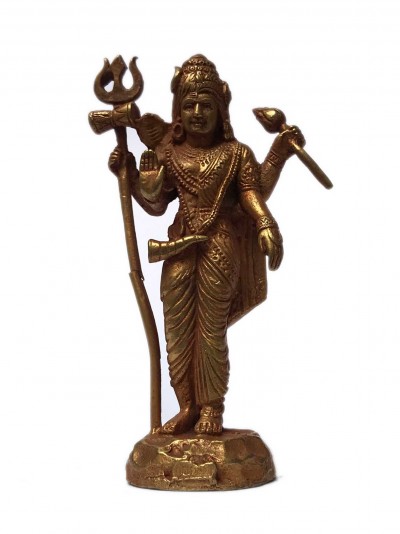Loading Content..

The Ardhanarishvara (Sanskrit: अर्धनारीश्वर, Ardhanārīśwara) is a composite form of the Hindu deities Shiva and Parvati (the latter being known as Devi, Shakti and Uma). Ardhanarishvara is depicted as half-male and half-female, equally split down the middle. The right half is usually the male Shiva, illustrating his traditional attributes.
The earliest Ardhanarishvara images are dated to the Kushan period, starting from the first century CE. Its iconography evolved and was perfected in the Gupta era. The Puranas and various iconographic treatises write about the mythology and iconography of Ardhanarishvara. Ardhanarishvara remains a popular iconographic form found in most Shiva temples throughout India, though very few temples are dedicated to this deity.
Ardhanarishvara represents the synthesis of masculine and feminine energies of the universe (Purusha and Prakriti) and illustrates how Shakti, the female principle of God, is inseparable from (or the same as, according to some interpretations) Shiva, the male principle of God, and vice versa. The union of these principles is exalted as the root and womb of all creation. Another view is that Ardhanarishvara is a symbol of Shiva's all-pervasive nature.
Loading..
Please wait for the page to fully load for optimal functionality.
Loading Content..